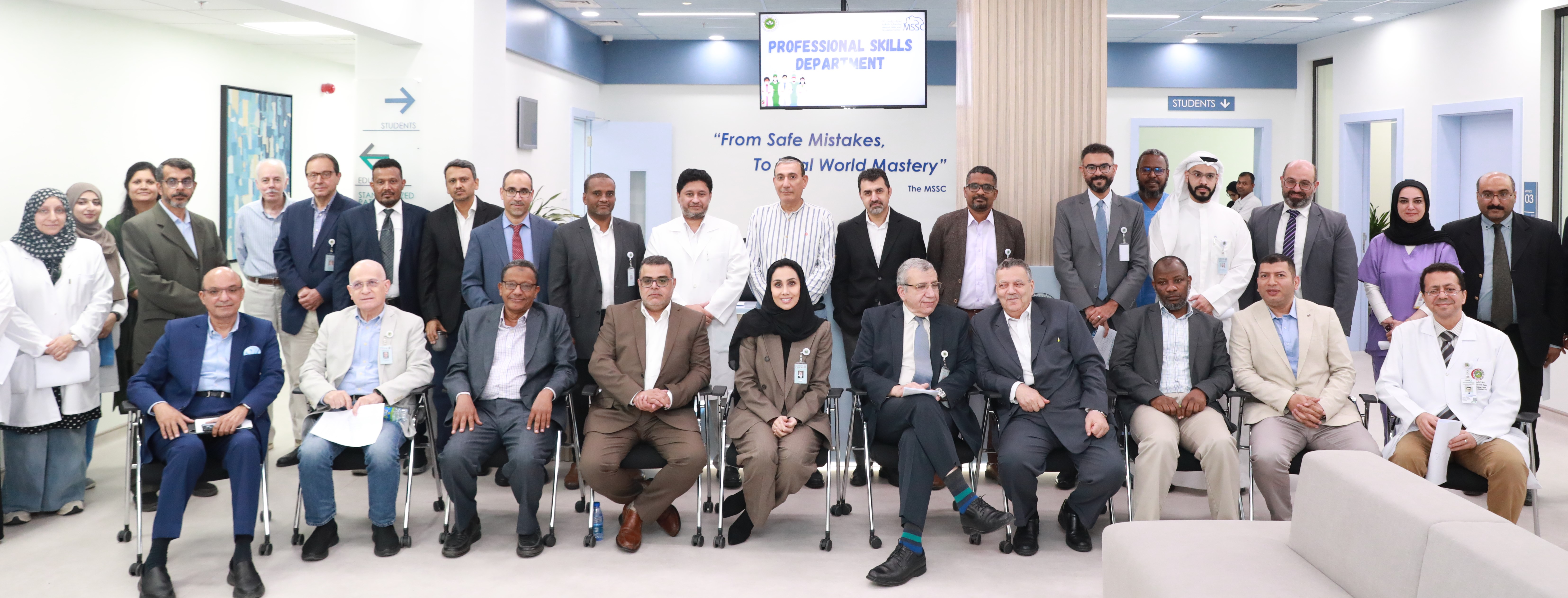
AGU Hosts Interactive Workshop to Enhance Quality of Medical Education Through Simulation Techniques
Arabian Gulf University
12 Apr, 2025
The Department of Medical Education and the Medical Skills and Simulation Centre at the College of Medicine and Health Sciences at Arabian Gulf University (AGU) recently organised an interactive workshop titled "Employing Best Simulation Practices to Enhance Teaching in the Medical Field". This event featured presentations from several academics specialised in the development of medical education methodologies.
In line with its ongoing commitment to supporting professional development of its faculty and improving educational quality, the university is adopting the latest simulation-based teaching strategies that have proven effective in preparing medical professionals. The workshop aimed to provide an integrated educational experience, combining theoretical knowledge with practical application. Participants were trained on how to effectively utilise simulation to enhance learning outcomes and increase the efficiency of clinical education.
Key topics addressed during the workshop included the various types of simulation in medical education, the importance of fostering a psychologically safe learning environment, and the value of providing constructive feedback. The workshop also highlighted the significance of promoting deliberate practice, leveraging failure as a learning opportunity, and developing essential skills such as critical thinking, communication, teamwork, and decision-making.
The interactive nature of the workshop allowed participants to experiment with the design and implementation of educational simulation activities. Emphasis was placed on best practices to maximise educational benefits, underscoring that successful simulation usage relies not only on effective tools but also on a flexible and intentional approach that supports learners and fosters high-quality educational outcomes.
A a session titled "How Medical Educators Can Benefit from Best Simulation Learning Practices" demonstrated how to translate abstract educational principles into concrete practices that positively impact medical and professional learning environments. It stressed that simulation learning extends beyond clinical skills to encompass communication skills, critical thinking, teamwork, and decision-making, asserting that these practices can transform any medical learning environment when applied with purpose.
The workshop attracted numerous faculty members and individuals interested in professional development, offering them a rich learning experience that combined deep insights with practical application. Trainers encouraged participants to enhance their teaching practices by thoughtfully integrating simulation techniques, based on the belief that excellence in medical education is achieved not only through knowledge transfer but authentic interactions between educators and learners.
